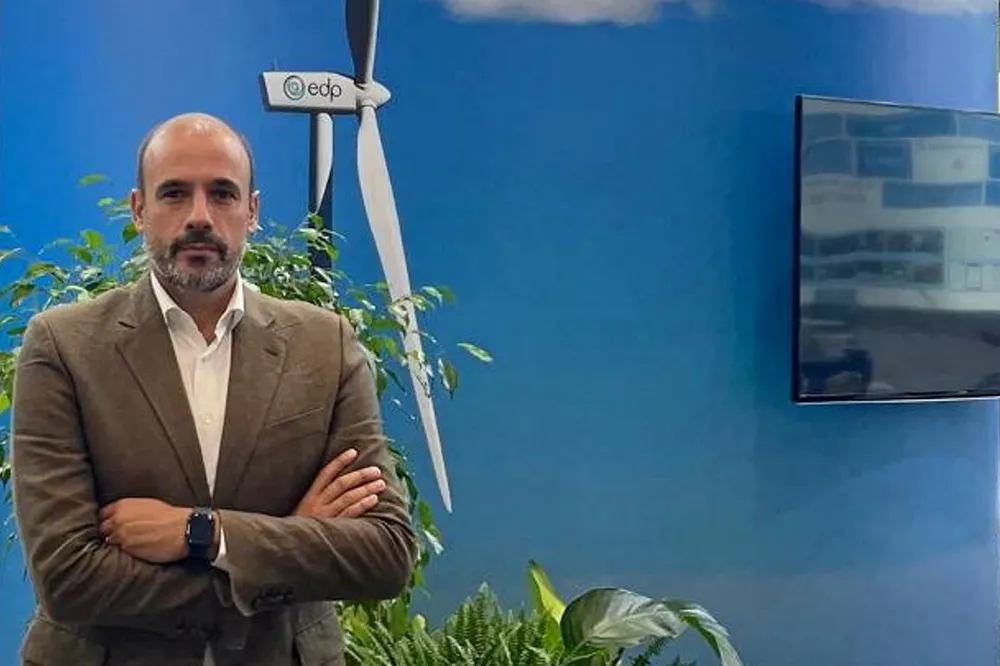EDP Renewables says Germany to be its biggest European growth engine
More could be done to tackle regulatory barriers but nation's attraction is unmatched, developer reckons

Barely three years after entering the German renewables market with a solar platform acquisition, EDP Renewables' aggressive investment plan is expected to turn Europe's biggest economy into its second global growth engine, said an executive with the Iberian developer.
"It is very clear to us that [Germany] has the greatest growth potential in Europe and it will be our own principal growth market over the next few years," said Pedro Vinagre, head of North & Central Europe at EDPR, a company rooted in Portugal but today headquartered in Madrid.
"If we look at the presence of EDPR in the world, Germany will probably become our second market [for wind and solar], behind the US."
In terms of its own ambition to become one of the most "relevant" investors in the German renewables sector, EDPR took the first step in this direction in 2022, with the acquisition of a 70% stake in Kronos Solar, a local company specialising in solar.
Vinagre says that project is expected to deliver provide a net 100MW of capacity by 2030, but this is just the beginning of the company's €300m ($335m) three-year investment plan for Germany, which is focused strongly on wind which, he said, is "in the company's DNA" after developing about 15GW over the last 20 years.
Among the "positive" things attracting EDPR to Germany, Vinagre cites "the German government's efforts over the last two years to speed up the processes for the permitting and licensing of projects" as part of an initiative to identify the development of renewables as a matter of national interest, especially, he noted, after Russia's invasion of Ukraine.
Vinagre also praised the EEG mechanism that provides a strong remuneration link between production and consumption of energy, along with what he described as Germany's attractive market for power purchase agreements.
'Extremely positive'
"We see all as this as extremely positive and giving impetus to get to these targets of 10GW."
Among the topics still demanding attention, Vinagre said developers have to navigate two different worlds, where the central government's ambitions bump into a "very different daily reality" at municipal and regional level, where there can be a low degree of digitalisation and processes can lack clarity or visibility on what is needed, or how many months it will take.
"In practice we still some difficulties and delays in the licensing processes," he said.
"Germany is a big country but in terms of licensing it as if there were several small countries inside a bigger one, The result is that processes can be slow and sometimes not very predictable, sometimes springs surprises and regional idiosyncrasies. The difficulty in making this more streamlined could weigh against delivery of the 10GW," he said.
Vinagre also warned that Germany would have to be alert to avoid the grid connection problems that stand out today in markets such as the UK and the Netherlands.
But he promised that EDPR will pursue its own initiatives to maximise grid utilisation resources, such as the kind of hybrid renewablews projects implemented in Portugal and Poland.
Overall though, Vinagre said Germany scores high when it comes to the developers' concerns on the needs stable and predictable regulation, and remuneration mechanisms. "Germany clearly fills the criteria for the kind of large scale investments were are talking," he said
"We believe Germany will become the most important country in Europe for our growth," he said, forecasting a "stream of significant projects in this country".
Asked about the impacts of possible change in government in the future, with the prospect of a less welcoming approach to renewables, Vinagre said: "Obviously such a shift presents a concern, but this is part of a global concern about polarisation and only redoubles our responsibility to work as hard as we can on dialogue with stakeholders whether in a polarised environment or not."
(Copyright)